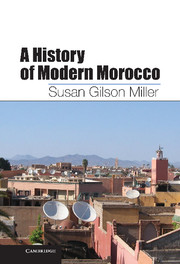Book contents
- Frontmatter
- Contents
- List of Maps and Illustrations
- Acknowledgments
- Note on Transliteration and Translation
- Chronology
- Who Is Who?
- Introduction
- 1 The Closing of the Era of Jihad (1830–1860)
- 2 Facing the Challenges of Reform (1860–1894)
- 3 The Passing of the Old Makhzan (1894–1912)
- 4 France and Spain in Morocco
- 5 Framing the Nation (1930–1961)
- 6 The First Age of Hassan II
- 7 The Second Age of Hassan II
- 8 Summation
- 9 Postscript
- Key Abbreviations
- Glossary
- French Rsidents-Généraux in Morocco, 1912–1956
- Sultans and Kings of the ʿAlawite Dynasty, 1664–2012
- Notes
- Bibliography of Works Cited
- Index
5 - Framing the Nation (1930–1961)
Published online by Cambridge University Press: 05 February 2013
- Frontmatter
- Contents
- List of Maps and Illustrations
- Acknowledgments
- Note on Transliteration and Translation
- Chronology
- Who Is Who?
- Introduction
- 1 The Closing of the Era of Jihad (1830–1860)
- 2 Facing the Challenges of Reform (1860–1894)
- 3 The Passing of the Old Makhzan (1894–1912)
- 4 France and Spain in Morocco
- 5 Framing the Nation (1930–1961)
- 6 The First Age of Hassan II
- 7 The Second Age of Hassan II
- 8 Summation
- 9 Postscript
- Key Abbreviations
- Glossary
- French Rsidents-Généraux in Morocco, 1912–1956
- Sultans and Kings of the ʿAlawite Dynasty, 1664–2012
- Notes
- Bibliography of Works Cited
- Index
Summary
It is difficult to pinpoint the precise moment when the concept of nationalism entered the Moroccan political consciousness. We know that the idea of a Moroccan nation as a framework for political life appeared in writing in the mid-nineteenth century, as a way of distinguishing “Moroccans” from other peoples. The scholar-scribe Muhammad al-Saffar, traveling in France in 1846, spoke of “the people of Morocco” as a definable entity, different from others, with their own particular cultural, religious, linguistic and political qualities. Later in the century, the lexicon of historian Ahmad al-Nasiri included the word watan, or “homeland,” suggesting a distinct Moroccan territory, separate from its neighbors. But the notion of a Moroccan “nation” as the centerpiece for an ideology of exclusivity or a rallying point for people’s aspirations did not yet exist, nor would it for some time. In this chapter, we shall trace the trajectory of the Moroccan nationalist movement from its obscure origins in the madina of Fez and the streets of Paris to a hard-won independence – an objective achieved within the space of a single generation.
THE ORIGINS OF MOROCCAN NATIONALISM
The moment of transition to a new world order in which “nationalism” became an ideological preoccupation of colonial peoples occurred after World War I. Out of the wreckage of the Great War, new states emerged on the periphery of Europe, inspired by notions of parliamentary democracy, rule of law, and constitutionalism as governing norms, all within a clearly defined national space. President Wilson’s Fourteen Points, first articulated in January 1918 and then reiterated at the Paris Peace Conference of 1919, carried the hope of national “self-determination” for all peoples, regardless of who they were or where they lived.
- Type
- Chapter
- Information
- A History of Modern Morocco , pp. 120 - 161Publisher: Cambridge University PressPrint publication year: 2013



